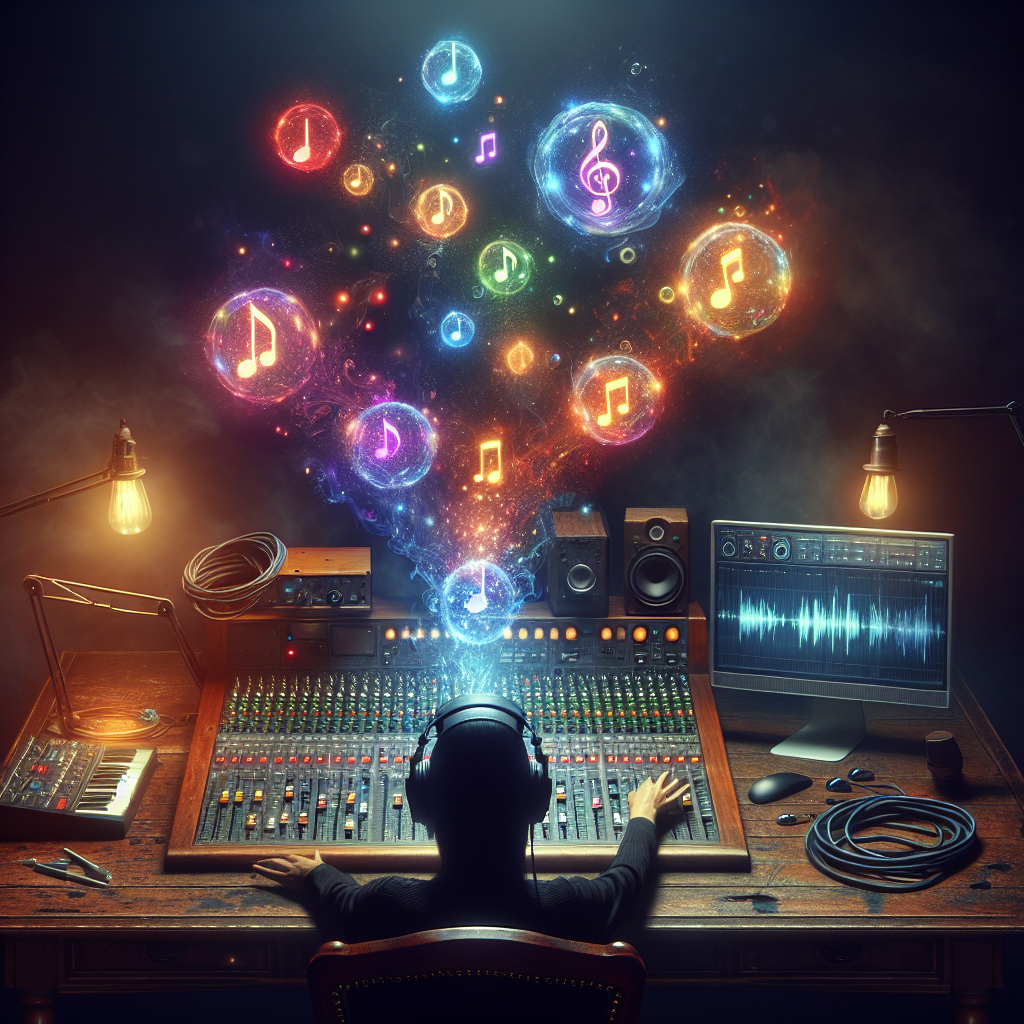Unveiling the Magic Behind Audio Mixing
In the world of music production, audio mixing plays a cornerstone role in the final result that we are accustomed to hearing through our speakers. By striking the right balance, emphasis, and blending of different sounds, a mix can dramatically enhance the overall perception of a song or a soundtrack. But what exactly is this “magic” behind audio mixing? Let’s delve deeper and debunk the mystery.
What is Audio Mixing?
Audio mixing is the process by which multiple sounds are combined into one or more channels. This process involves the balance of volume levels, adjustment of frequencies, the integration of effects, and enhancing spatial placement of instruments in a sound recording.
The ultimate goal of audio mixing is to bring the best out of your multi-track recording by adjusting levels, panning, and time-based audio effects like reverb and delay. A good mix can make a song sparkle, and it’s essential for the success of any music genre.
The Elements of Audio Mixing
The magic of audio mixing lies in the manipulation of core elements: level, panorama, time-based effects, and frequency. Mastering these ingredients means you got the recipe for a mesmerizing audio mix.
Level
The level refers to the loudness or softness of a sound. By controlling the levels, an audio engineer can improve the clarity of a mix, bring out the most important elements, and even direct the listener’s attention.
Panorama
Panorama, or “panning”, distributes the sound in the stereo field. This can create depth and space in the mix, making the track sound three-dimensional.
Time-based Effects
These existing tools like echo, delay, and reverb can change the perception of time and space in a mix. They offer depth to the mix by prolonging the sound in an adjustable manner.
Frequency
Each instrument has its own frequency range. By effectively cutting or boosting frequencies, engineers can prevent clashing, improve clarity, and enhance the overall tonal balance of the mix.
The Magic Unveiled
The aforementioned ingredients artistically interweave to create a fascinating audio mix. Combining these elements in creative ways allows mix engineers to sculpt a compelling auditory experience, giving birth to an entirely new sound composition from a collection of unprocessed audio tracks.
Remarkably, it’s not only about technical skills but also about intuition and interpretation of the music. This creative process brings out the emotion, meaning, and message of the music. And this is where the real magic happens!
Conclusion
While from the outside, audio mixing might seem like a complex and mystifying process, it is essentially about balancing art and science. With techniques such as leveling, panning, adding time-based effects, and adjusting frequencies, engineers can create an auditory experience that evokes emotions and brings music to life. It is in the dance between these elements that the real magic of audio mixing comes to the fore and finally unveiled.
FAQs about Audio Mixing
-
What is the purpose of audio mixing?
The purpose of this process is to shape and enhance the sound of a recording, making it more appealing and engaging to the listener’s ear.
-
What is the difference between mixing and mastering in music production?
While mixing is about balancing and blending multiple tracks in a song, mastering is about ensuring the song sounds consistent and professional across all playback devices and formats.
-
Can I mix my own music?
Yes, with the right tools, training, patience, and practice, you can mix your own music. However, it may take time to achieve the desired results as it is a craft that requires a lot of skill and experience.
-
What tools do I need for audio mixing?
You’ll need a DAW (Digital Audio Workstation), which is the software platform where you perform the mix, and quality headphones or studio monitors. Furthermore, the mix can be influenced by plugins that simulate hardware like compressors, EQs, and reverb units.
-
What skills do I need to be good at audio mixing?
Good ears and a deep understanding of sound and music are pivotal. It involves technical skills, knowledge of music, and often, considerable creativity and intuition.

